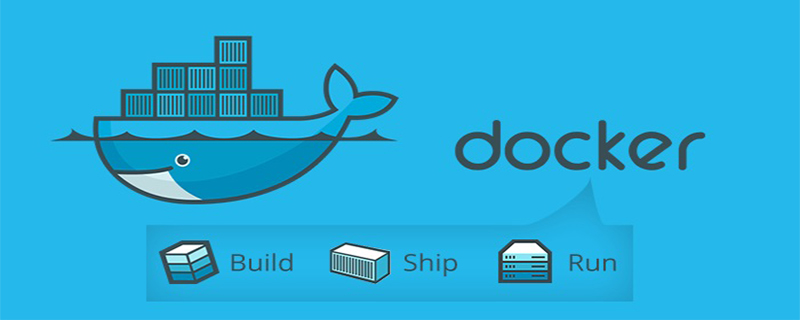What are the four network modes of docker?

Four network modes:
(Recommended tutorial: docker tutorial)
host mode
Container mode
none mode
bridge mode
docker run -it --rm --net=host centos_with_net bash
Use --net=container:container_id/container_name. Multiple containers using the same network will see the same IP.
Use --net=none to specify, no network will be configured in this mode.
Use --net=bridge to specify. If not specified, this network mode will be used by default. This mode assigns an independent Network Namespace to each container. Similar to Vmware's nat network mode. All containers on the same host will be on the same network segment and can communicate with each other.
host mode
If you use host mode when starting a container, the container will not get an independent Network Namespace, but will share a Network with the host. Namespace. The container will not virtualize its own network card, configure its own IP, etc., but use the host's IP and port.
However, other aspects of the container, such as the file system, process list, etc., are still isolated from the host.
container mode
Container mode specifies that the newly created container shares a Network Namespace with an existing container, rather than sharing it with the host. The newly created container will not create its own network card and configure its own IP, but will share the IP, port range, etc. with a specified container.
Similarly, except for the network, the two containers are still isolated from other aspects such as file systems, process lists, etc. The processes of the two containers can communicate through the lo network card device.
none mode
Using none mode, the Docker container has its own Network Namespace, but no network configuration is performed for the Docker container. In other words, this Docker container does not have network card, IP, routing and other information. We need to add network cards, configure IP, etc. to the Docker container ourselves.
bridge mode
Bridge mode is Docker’s default network setting. This mode allocates Network Namespace, sets IP, etc. to each container, and sets the IP address on a host. Docker containers are connected to a virtual bridge.
The above is the detailed content of What are the four network modes of docker?. For more information, please follow other related articles on the PHP Chinese website!

Hot AI Tools

Undresser.AI Undress
AI-powered app for creating realistic nude photos

AI Clothes Remover
Online AI tool for removing clothes from photos.

Undress AI Tool
Undress images for free

Clothoff.io
AI clothes remover

Video Face Swap
Swap faces in any video effortlessly with our completely free AI face swap tool!

Hot Article

Hot Tools

Notepad++7.3.1
Easy-to-use and free code editor

SublimeText3 Chinese version
Chinese version, very easy to use

Zend Studio 13.0.1
Powerful PHP integrated development environment

Dreamweaver CS6
Visual web development tools

SublimeText3 Mac version
God-level code editing software (SublimeText3)

Hot Topics
 How to exit the container by docker
Apr 15, 2025 pm 12:15 PM
How to exit the container by docker
Apr 15, 2025 pm 12:15 PM
Four ways to exit Docker container: Use Ctrl D in the container terminal Enter exit command in the container terminal Use docker stop <container_name> Command Use docker kill <container_name> command in the host terminal (force exit)
 How to check the name of the docker container
Apr 15, 2025 pm 12:21 PM
How to check the name of the docker container
Apr 15, 2025 pm 12:21 PM
You can query the Docker container name by following the steps: List all containers (docker ps). Filter the container list (using the grep command). Gets the container name (located in the "NAMES" column).
 How to copy files in docker to outside
Apr 15, 2025 pm 12:12 PM
How to copy files in docker to outside
Apr 15, 2025 pm 12:12 PM
Methods for copying files to external hosts in Docker: Use the docker cp command: Execute docker cp [Options] <Container Path> <Host Path>. Using data volumes: Create a directory on the host, and use the -v parameter to mount the directory into the container when creating the container to achieve bidirectional file synchronization.
 How to restart docker
Apr 15, 2025 pm 12:06 PM
How to restart docker
Apr 15, 2025 pm 12:06 PM
How to restart the Docker container: get the container ID (docker ps); stop the container (docker stop <container_id>); start the container (docker start <container_id>); verify that the restart is successful (docker ps). Other methods: Docker Compose (docker-compose restart) or Docker API (see Docker documentation).
 How to start mysql by docker
Apr 15, 2025 pm 12:09 PM
How to start mysql by docker
Apr 15, 2025 pm 12:09 PM
The process of starting MySQL in Docker consists of the following steps: Pull the MySQL image to create and start the container, set the root user password, and map the port verification connection Create the database and the user grants all permissions to the database
 How to update the image of docker
Apr 15, 2025 pm 12:03 PM
How to update the image of docker
Apr 15, 2025 pm 12:03 PM
The steps to update a Docker image are as follows: Pull the latest image tag New image Delete the old image for a specific tag (optional) Restart the container (if needed)
 How to view the docker process
Apr 15, 2025 am 11:48 AM
How to view the docker process
Apr 15, 2025 am 11:48 AM
Docker process viewing method: 1. Docker CLI command: docker ps; 2. Systemd CLI command: systemctl status docker; 3. Docker Compose CLI command: docker-compose ps; 4. Process Explorer (Windows); 5. /proc directory (Linux).
 How to create containers for docker
Apr 15, 2025 pm 12:18 PM
How to create containers for docker
Apr 15, 2025 pm 12:18 PM
Create a container in Docker: 1. Pull the image: docker pull [mirror name] 2. Create a container: docker run [Options] [mirror name] [Command] 3. Start the container: docker start [Container name]






